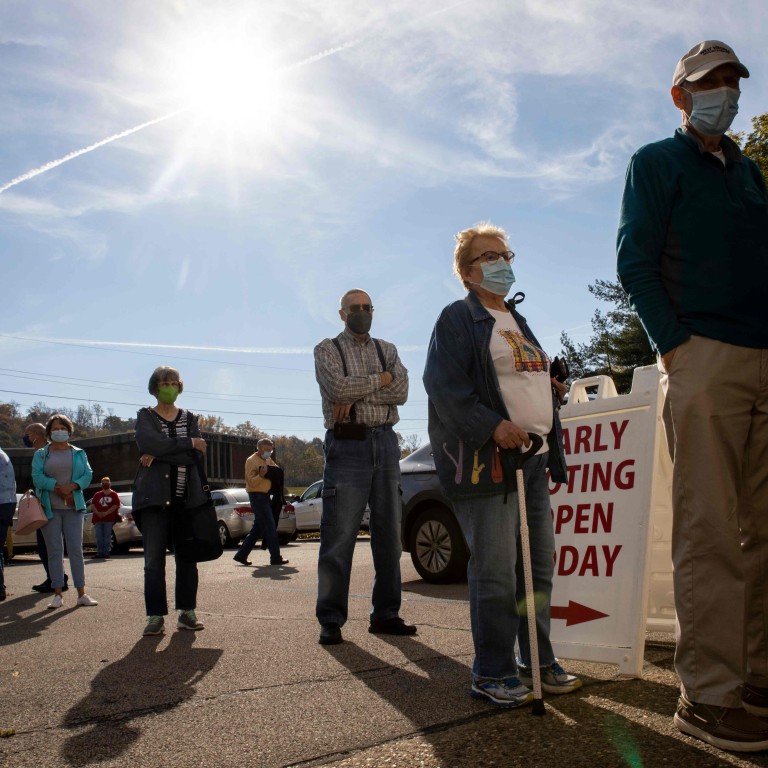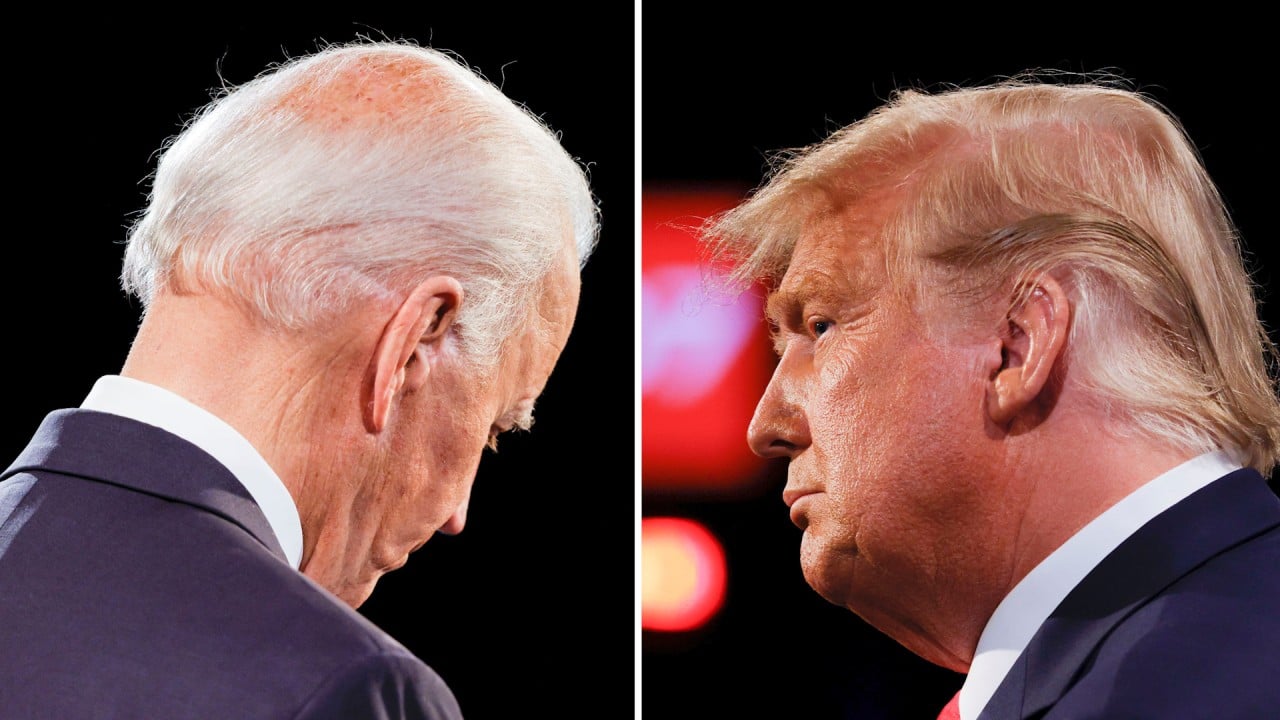
US election: do polls forecast victory for Joe Biden, or Donald Trump?
- Democratic contender and Republican incumbent enter the final days of the contest to win the Electoral College, and with it the race for the White House
- Expectations are clouded by the pandemic, and a result in the 2016 election that surprised most
The November 3 election will determine not only whether Trump – a mercurial figure who has shaken up domestic and international norms – will lead the United States for the next four years, but whether the direction he has charted for the past four was an aberration or a fundamental shift for the world’s superpower.
Regardless of whether they win the popular vote – the total number of votes nationally – the victor must secure at least 270 votes to win the Electoral College, the 538 electoral votes allocated among US states based on their population.
What happens if the 2020 US election is contested?
What do the polls say now?
Most forecasts say that Biden is likely to win the election. After the second and final presidential debate between him and Trump, a poll from IBD/TIPP gave Biden a 7.2 per cent lead over Trump and another from the University of Southern California put Biden 10.7 per cent in front.
FiveThirtyEight, a prominent polling analysis website, gave Biden an 87 per cent chance of winning the election, after simulating the contest 40,000 times. It said Trump was “running out of time to mount a comeback”, but still had a meaningful chance to eke out a victory.

10:08
Final US presidential debate for Trump and Biden covers Covid-19, China and ‘thug’ Kim
RealClearPolitics, another major polling data aggregator site, said Biden led by 50.8 per cent to Trump’s 42.8 per cent in an average of recent polls, with Biden predicted to secure at least 232 votes in the Electoral College and Trump 125, with 181 votes from swing states such as Wisconsin, Pennsylvania, Florida, Ohio and Texas predicted to be in the balance.
What did the polls say in 2016?
In the 2016 election, despite widespread expectations that former secretary of state Hillary Clinton would defeat Trump, polls were less clear and far closer in the lead-up to election day.
On the eve of that election, Nate Silver from FiveThirtyEight had highlighted a possible disparity between the popular vote and the Electoral College, giving Clinton an 85 per cent chance of winning the former but a 75 per cent chance of winning the all-important latter. In the event, Clinton gained nearly 3 million more votes nationally than Trump yet lost the Electoral College.

06:04
US-China relations: Joe Biden would approach China with more ‘regularity and normality’
Clinton’s lead of 2 percentage points in the popular vote – with 48.5 per cent to Trump’s 46.1 per cent – was narrower than the 3 points predicted in the final RealClearPolitics average of polls in the week of the election.
But this time, Biden’s lead over Trump is “larger and more stable”, according to Dave Wasserman, who analyses US House of Representative races for the Cook Political report. He put Biden ahead by 52 per cent to 43 per cent, and said fewer voters this year were undecided or voting for other candidates besides the leading two.
The 2016 election raised questions about polling, with experts saying some state polls failed to fully reflect rural voter turnout and undecided voters who voted for Trump.
How many people have already voted?
With more than a week to go before the election, nearly 60 million ballots had been cast early, mostly through mail-in ballots but also by in-person at early voting sites.
That already exceeds the total early votes in the 2016 election, and equates to 43 per cent of all votes counted in 2016, according to electoral information resource US Elections Project. Michael McDonald, a political science professor at the University of Florida who runs the project, has predicted record voter turnout this year of 150 million, representing 65 per cent of eligible voters, which would be the highest rate since the 1908 election.
Paranoia and blame in Trumpworld as election approaches
Early voting has been dominated by registered Democrats in the 19 states with party registration data. According to McDonald, registered Democrats account for 49.1 per cent of those states’ early votes, against 27.9 per cent for registered Republicans. But McDonald has cautioned against viewing high levels of Democrats voting early as an indication of final results.
When will we know the US election results?
There have been fears that this “pandemic election” will be messy, given potential delays in postal vote counting.
If results are tight, there could be a repeat of 2000, when the Electoral College hinged on the result in Florida, where George W. Bush beat Al Gore by 537 votes out of almost 6 million cast. The ensuing dispute went to the Supreme Court, the country’s highest court, which controversially ended a recount.

